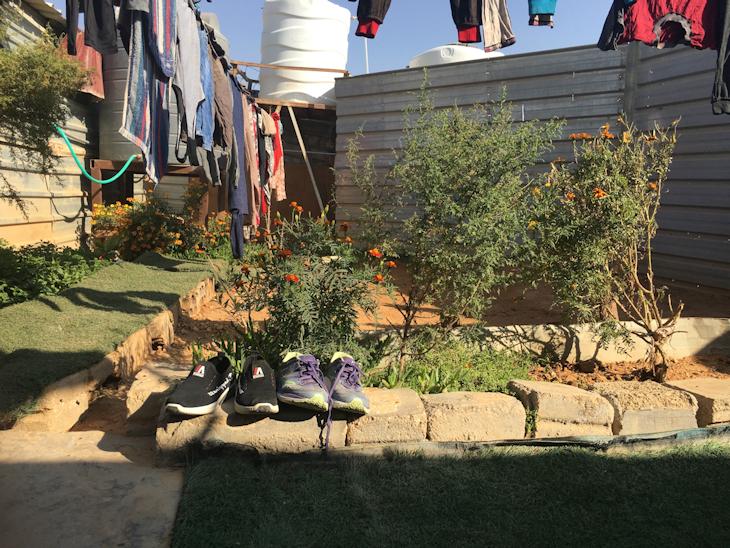
By: Dr. Helen Underhill
For many people around the world, recent months have seen an unprecedented redefinition our relationship with our homes, with millions spending time confined to whatever spaces we call home in a mass effort to slow the spread of Covid-19. Through this experience, ‘Home’ has become the locus of a new form of virtual solidarity and sociality, we have begun to understand domestic space as prison as well as shelter, as school room and office, even as a blank canvas for projects to keep us occupied (leading the British Society for Surgery of the Hand to issue an urgent appeal to the public not to undertake any over-ambitious household and garden DIY during the lockdown for fear of creating a further burden on the NHS).
Advocates and campaigners have rightly urged us to think about those who have no safe or reliable home to isolate themselves within – people experiencing homelessness, those in precarious and exploitative rental contracts, victims of domestic violence and refugees in camps across Europe and beyond. In light of this moment, that encourages collective reflection on what it means both to have, and to feel, at ‘home’, there is a particular resonance in launching a website dedicated to refugee reflections on this topic.
Making Home Away centres on the homes that have been lost and found by refugees of the recent Syrian crisis. Experiences of urban life are negotiated in particularly complex ways by refugees moving across regions and nations in pursuit of home. In these movements, they expand the dimensions of home. The project’s central output – a digital archive of refugee testimony gathered from interviews conducted across the Middle East, Europe and Canada – foregrounds the mobile dimensions which constitute programs of making and remaking home embarked upon by refugees, underscored by their testimonies of migration, displacement and resettlement.
The emerging digital archive established by the Making Home Away project encourages the reexamination of the idea of ‘home’ as a crucible for rethinking attitudes towards displacement, migration, and resettlement at both public and policy levels. Crucially, it challenges us to imagine how we might ensure that the concept of ‘home’ in all its material and affective senses, is centred within public discourse and policy making and recognised as a crucial element of successful integration, generating the conditions for refugee individuals to thrive within their host societies.
The stories presented in the archive span from the exceptional to the quotidian (one Syrian woman living in the UK talked about the struggle with learning which colour bins to put out for collection on which days.) Many of the refugee respondents describe how simple forms of knowledge allow them to go about their days, such as knowing what stop to use when taking the bus to and from the shops, or having the language skills to strike up a conversation with neighbours; a sense of independence that lays the foundations of feeling at home in a new place.
For many Syrian refugees housed in camps in Jordan, gardening was a material act of hope and an attempt at permanence: “We put some dirt under the windows and are hoping to put some plants, so when I open the windows I find flowers. We put the dirt but have not put the flowers yet. It needs a lot of water.”
Others discussed balancing their own psychological needs for stability with the needs and aspirations of other family members, most often parents trying to do their best for their children:
“Sometimes my children say to me, “Mum, let’s move house.” They need a big house. I told them, “I don’t want to move, I don’t want to, because, you know (…) where you understand the area, you are surrounded by your friends, I can’t explain to you… you know, if you sit, relax, stay in the same house, you will become… self confident, (but) if you go to another area, I think this is very difficult. It’s hard to change house.” Amira, Coventry, UK
The testimony hosted on the archive hints at ways in which many refugees are already engaged in expanding definitions of ‘home’ through acts of resilience and remaking, both material and conceptual. As we adjust to a ‘new normal’ in which life may have to be lived in much closer orbit to ‘home’, it is worth reflecting on how these spaces are established – how do we make ourselves feel at home? What does it mean for that space to be threatened, contaminated, even lost? How are aspects of home transferable, and homes re-established across space and time? We hope that the testimonies and reflections scattered across the map of the Making Home Away website will provide an opportunity for both scholars of migration, practitioners, policymakers and members of the public to spark new conversations around the fertile topic of ‘making home’.
The archive will launch on the 11th August 2020 and can be found at www.makinghomeaway.com
This project was funded by the British Academy’s “Tackling the UKs International Challenges” grant. It brings together work by principal investigator Dr. Yasmine Shamma (University of Reading) and co-investigators Professor Suzan Ilcan (University of Waterloo), and Professor Vicki Squire (University of Warwick). For further information, please contact: Postdoctoral Research Assistant to the project, Dr. Helen Underhill at makinghomeaway@gmail.com.
Dr. Helen Underhill is an anthropologist with a research history in Palestine/Israel. She is currently Postdoctoral Research Assistant to the Making Home Away project at the University of Reading, and previously supported the REALM (Research and Empirical Analysis of Labour Migration) research project on race and gender in relation to Keralite migration to the Gulf states, hosted at SOAS (led by Dr Caroline Osella). Her own research explores themes of mobility and morality which influence how artists produce the Palestinian art world through their interactions with each other and with the global art circuit.
